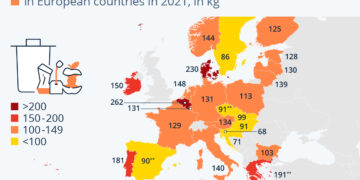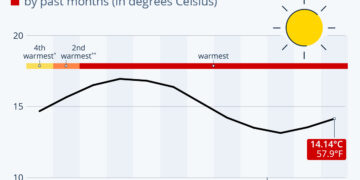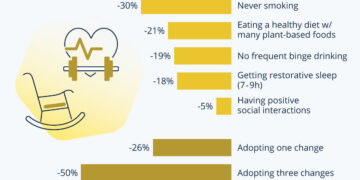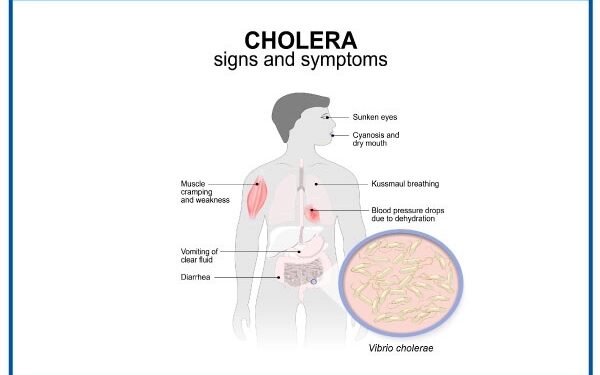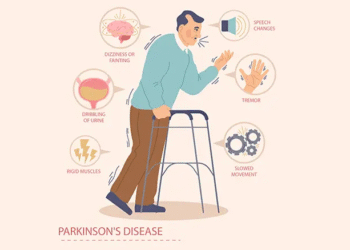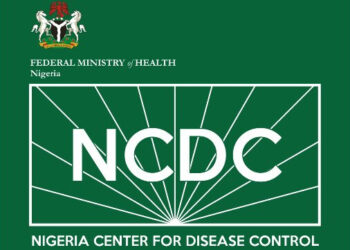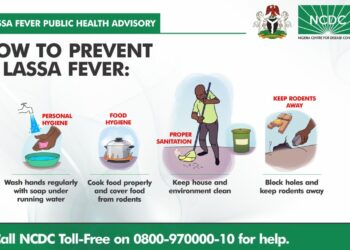The Nigeria Centre for Disease Control and Prevention (NCDC) has issued a public alert concerning the rising cholera cases across the nation, exacerbated by the intensifying rainy season. Lagos State has recently reported a significant outbreak, prompting heightened concern.
Between January 1 and June 11, 2024, Nigeria has recorded 1,141 suspected cholera cases, with 65 confirmed and 30 resulting deaths across 96 Local Government Areas (LGAs) in 30 states. The ten states contributing to 90% of these cases include Bayelsa, Zamfara, Abia, Cross River, Bauchi, Delta, Katsina, Imo, Nasarawa, and Lagos.
In response, the multi-sectoral National Cholera Technical Working Group, led by the NCDC and involving the Federal Ministries of Environment and Water Resources, the National Primary Health Care Development Agency (NPHCDA), the World Health Organization (WHO), UNICEF, and other partners, has been actively supporting affected states. Their interventions encompass risk communication, active case search, laboratory diagnosis, case management, provision of response commodities, water sanitation and hygiene (WASH) measures, and the dissemination of cholera awareness messages in both English and local languages.
About Cholera
Cholera is a waterborne disease caused by the ingestion of the Vibrio Cholerae bacterium through contaminated food and water. Contamination can occur at the water source, during transportation, or storage at home, and food can be tainted by soiled hands during preparation or consumption.
Common transmission vehicles include beverages prepared with contaminated water, ice, commercial bottled water, and produce washed with untreated water. The incubation period ranges from 2 hours to 5 days, with higher transmission risks in areas lacking adequate sanitation and clean water.
High-Risk Groups
Those most at risk include:
- Individuals in areas with limited access to clean water.
- Residents in places with poor sanitation and hygiene.
- People in slums or rural areas relying on unsafe water sources.
- Consumers of potentially contaminated food or improperly washed produce.
- Those not practicing proper hand hygiene.
- Victims of natural disasters leading to population displacement and overcrowded camps.
- Relatives and healthcare workers caring for cholera patients without standard precautions.
Symptoms and Treatment
Symptoms of cholera include sudden onset of acute, painless watery diarrhea (resembling rice water stools), nausea, vomiting, and fever. Severe cases can lead to death within hours due to dehydration. However, most infected individuals (around 80%) show mild or no symptoms.
Cholera is treatable if detected early. Most cases can be managed successfully with oral rehydration solution (ORS) and appropriate antibiotics to replace lost fluids and electrolytes. Delayed treatment can be fatal.
Prevention Measures
Preventing cholera involves ensuring access to safe drinking water, proper sanitation, and hygiene practices such as regular handwashing. Avoiding raw or undercooked foods, particularly from street vendors, and thoroughly washing fruits and vegetables is essential.
Public Advisory
To reduce the risk of cholera, the NCDC advises:
- Boiling and storing water in clean, covered containers before drinking.
- Practicing good hand hygiene with soap and clean water or alcohol-based sanitizers.
- Ensuring food is well-cooked before consumption and avoiding raw produce unless properly washed.
- Avoiding open defecation and improper waste disposal, and ensuring regular sewage clearance.
- Seeking immediate medical attention if experiencing sudden watery diarrhea.
Healthcare Workers’ Advisory
Healthcare workers should always practice standard safety precautions, including wearing gloves when handling patients, and enhance surveillance efforts to promptly report suspected cholera cases.
State Governments’ Advisory
The NCDC urges state governments to prioritize solutions that ensure access to safe water, sanitation, and hygiene in communities. As the NCDC and its partners continue to lead the health-sector response to cholera outbreaks, urgent improvements in water, sanitation, and hygiene are critical.





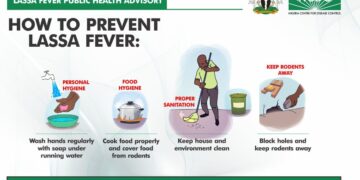






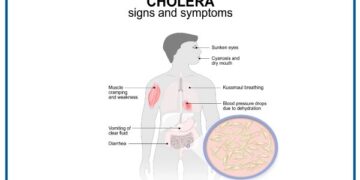
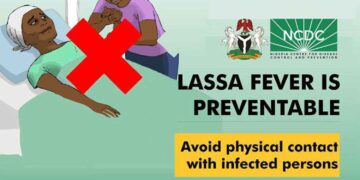


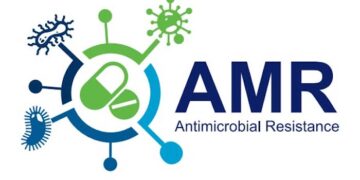

![Antimicrobial Resistance [AMR] in Hausa](https://healthtoday.com.ng/wp-content/uploads/2024/02/antimicrobial-resistance-AMR--360x180.jpeg)




